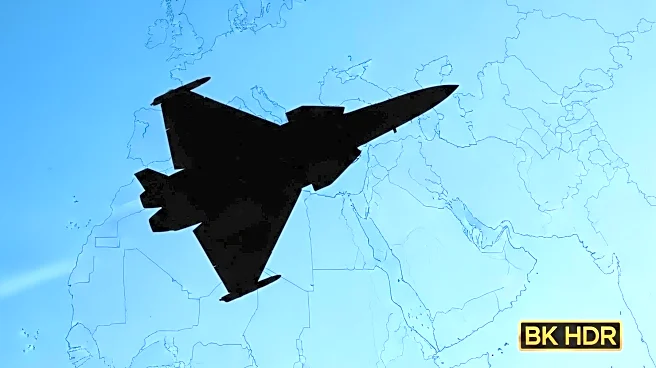What's Happening?
The Trump administration has informed Congress of its intention to sell nearly $6 billion in weapons to Israel. This proposal includes a $3.8 billion sale for 30 AH-64 Apache helicopters and a $1.9 billion sale for 3,200 infantry assault vehicles. The weapons delivery is expected to take two to three years or longer. This move comes as the U.S. faces challenges in brokering peace between Israel and Hamas, with Israel's recent actions in Gaza drawing international criticism. Despite pressure from U.S. Senate Democrats to block offensive weapon sales to Israel, the Trump administration continues to support its ally. The State Department has not commented on the sales, which were initially reported by The Wall Street Journal.
Why It's Important?
The proposed arms sale underscores the U.S.'s commitment to supporting Israel amid growing international scrutiny over its military actions in Gaza. This deal is part of a 10-year agreement between the U.S. and Israel, highlighting the strategic partnership between the two nations. The sale could impact U.S. relations with other Middle Eastern countries, as evidenced by Turkey's decision to close its airspace to Israeli planes and the U.K.'s suspension of certain arms exports to Israel. The transaction may also influence domestic politics, with some U.S. lawmakers opposing the sale due to concerns over humanitarian implications.
What's Next?
The proposal will undergo informal reviews by Congress at the committee level before being sent back to the State Department for formal processing. President Trump plans to meet with Turkish President Recep Tayyip Erdogan to discuss other military deals, which could affect the dynamics of U.S.-Turkey relations. The ongoing conflict in Gaza and international reactions may further complicate the approval process and influence future U.S. foreign policy decisions.
Beyond the Headlines
The arms sale raises ethical questions about the U.S.'s role in international conflicts and its responsibility in ensuring that military aid does not contribute to humanitarian crises. The deal may also affect long-term geopolitical alliances and the balance of power in the Middle East, potentially altering regional security dynamics.










